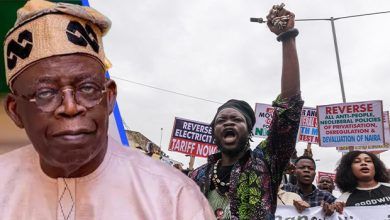
The National Economic Council (NEC) has approved the creation of a Cotton, Textile and Garment (CTG) Development Board, as well as new institutional structures to transform Nigeria’s agribusiness and livestock sectors projections show these moves could unlock up to $90 billion in economic value by 2035.
The resolutions followed the 149th NEC meeting held at the Presidential Villa in Abuja on Thursday. The meeting was chaired by Vice President Kashim Shettima, with attendance from state governors, federal cabinet members, and other key economic stakeholders.
According to the Senior Special Assistant to the Vice President on Media and Communications Stanley Nkwocha, the Cotton Board will serve as the apex regulatory and promotional body for Nigeria’s ailing textile industry. It will operate from the Presidency, be private-sector driven, and draw funding from the Textile Import Levy collected by the Nigeria Customs Service.
Shettima said the move aligns with President Tinubu’s broader economic recovery agenda, especially efforts to tackle the root causes of poverty and insecurity.
“Our goal is not just regulation. It is a revival. This is our opportunity to re-industrialise, empower communities, and restore pride in local production,” the Vice President said.
Currently, Nigeria produces just 13,000 metric tonnes of cotton annually, despite suitable growing conditions in 34 states forcing the country to import hundreds of millions of dollars’ worth of textiles.
Green Imperative and Livestock Strategies Also Get Go-Ahead
The Council also endorsed the Green Imperative Project with a national coordination office in Abuja and six zonal offices, while backing the National Agribusiness Policy Mechanism aimed at boosting sustainable food systems.
In addition, the Ministry of Livestock Development presented a new Nigeria Livestock Growth Acceleration Strategy, which builds on the 2018–2028 National Livestock Transformation Plan.
The livestock strategy, valued between $74 billion and $90 billion, focuses on:
- Ranching and peacebuilding,
- Animal health and disease control,
- Breed improvement,
- And improved feed and water management.
Council members approved the transfer of ₦100 billion in funding and supported proposals for exporting red meat to the Middle East and Asia, as well as creating state-level livestock ministries and public-private partnerships.
Shettima: Time for Action, Not Rhetoric
In a call to action, Shettima urged state leaders to rise above partisanship and focus on delivering real outcomes:
“Governance is not the theatre of promises. It is the solemn business of fulfilment. Our citizens are not waiting for another speech they are waiting for results.”
To ensure implementation, he proposed that NEC establish a Monitoring Committee that will conduct field assessments and track execution of adopted policies.
Boosting Skills and Economy
NEC was also briefed by Minister of Education, Dr. Tunji Alausa, on plans to train five million youths in income-generating skills by 2030 through an expanded Technical and Vocational Education Training (TVET) system.
The Accountant-General of the Federation, Shamseldeen Ogunjimi, provided the Council with fiscal updates:
- Excess Crude Account: $473,754.57
- Stabilisation Account: ₦63.54 billion
- Natural Resources Development Account: ₦72.86 billion
NEC wrapped up with renewed commitment to inter-governmental cooperation, particularly in enhancing rural development, job creation, and economic resilience across Nigeria’s six geopolitical zones.





